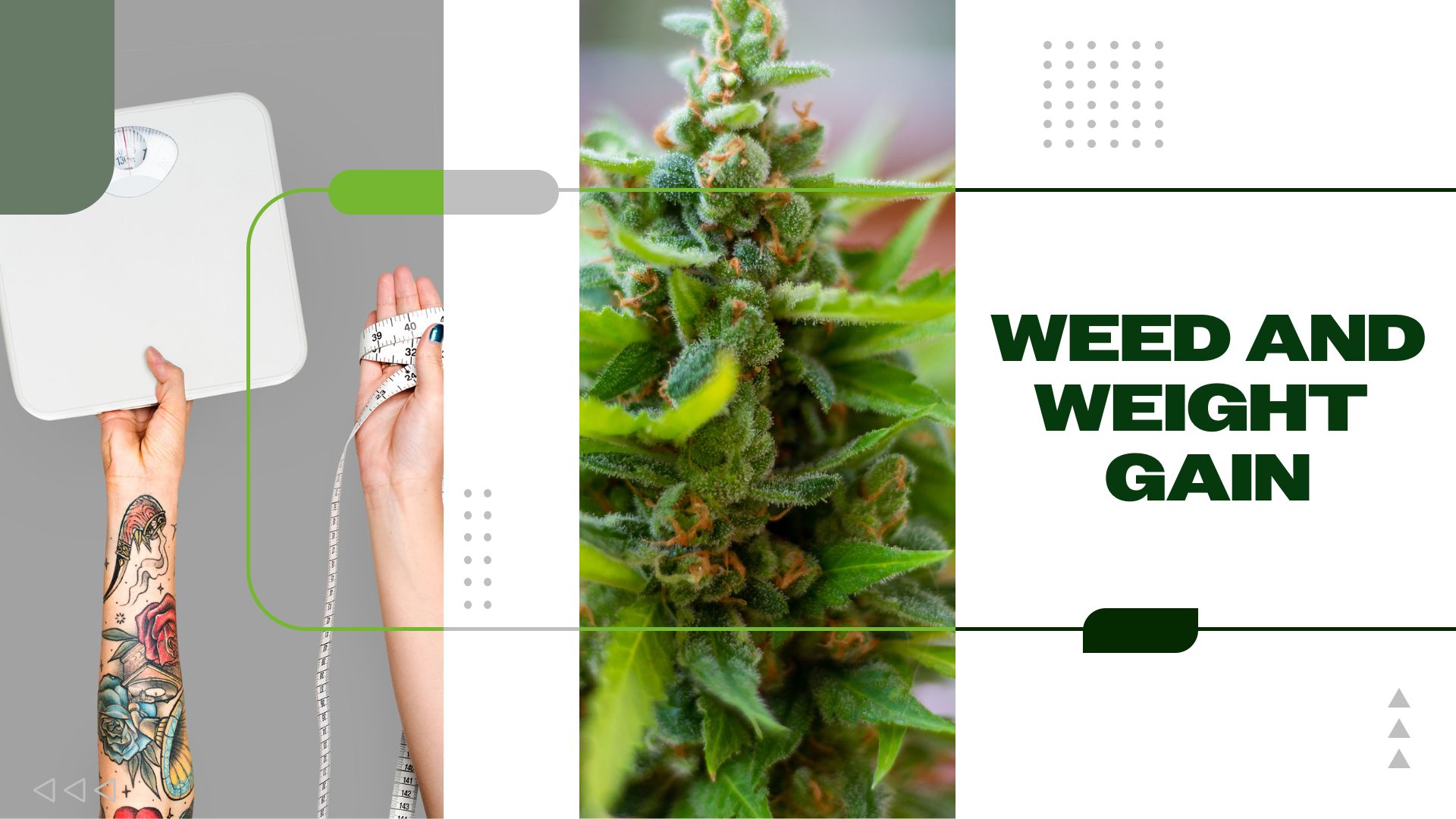Cannabis first became a legal target because it was commonly smoked in jazz clubs in the 1920s, where young Black and white people socialized in a time when cross-race relations were prohibited. By criminalizing cannabis, the government had a reason to raid jazz clubs and attempt to enforce segregation.
Later, the War on Drugs targeted and incarcerated a disproportionate number of Black men and continued to leverage prohibition against communities of color. However, great strides have been made since then, with more than 35 states having legalized medical cannabis and around half having legalized recreational use.
Along with legalization came the ability to study the plant more easily. People have known for millennia that cannabis is a potent medicine, and we can finally take a closer look at its mechanisms and effects on the mind and body.
This article will explore the relationship between weed and weight gain based on the current science available.
Does Weed Cause Weight Gain?
Despite increasing appetite in the short term, there is growing evidence that people who consume cannabis have lower BMIs and obesity rates thanks to an increased metabolism. Genetic and lifestyle factors including diet, exercise, age, and more all impact weight gain.
Understanding Cannabis and Appetite
A 2018 meta-analysis published in Cannabis and Cannabinoid Research points out a paradox: “[There are] significantly reduced body mass index and rates of obesity in cannabis users, in conjunction with increased caloric intake.” In the paper, researchers propose that cannabis use can increase your metabolism — hence why you can get the munchies without gaining weight.
Four years later, a 2022 review published in Cannabis and Cannabinoid Research explored cannabis as a treatment for obesity. Researchers collected data from the PubMed database using keywords such as “cannabis and obesity” to compare the existing literature’s findings.
The results of the review are that, once again, “people who use cannabis have a lower body mass index than those who do not.” The review also found data supporting the anti-inflammatory properties of cannabis.
Considering these and other findings, researchers concluded that “(P)hytocannabinoids derived from Cannabis sativa have therapeutic potential due to its anti-inflammatory, antioxidant, and neuroprotective properties, making the plant a study option to reduce and reverse inflammation and comorbidities associated with obesity.”
In other words, cannabis is a potential treatment option for not only obesity itself but also its comorbidities.
On the other hand, a 2022 review published in the International Journal for Environmental Research and Public Health notes: “Conflicting studies have been reported between adult[s] and adolescents, as there are reports of THC use leading to increased weight due to elevated appetite and consumption of food, while others observed a decrease in overall body weight.”
Why You Should Get Your Medical Marijuana Card
Veriheal has satisfied millions of patients nationwide by giving them access to these benefits
- Larger purchase limits
- Peace of mind
- Enhanced legal protection
- Access to higher potency strains
- Save up to 25% on cannabis purchases
- Skip the line at the dispensary
While there is strong evidence that cannabis use often correlates with a lower body mass index (BMI), studies are ultimately inconclusive because there are so many factors that impact whether or not someone gains or loses weight.
Cannabis Consumption Methods and Their Impact on Weight
A 2020 study published in Translational Psychiatry found that ghrelin levels are higher after consuming edibles compared to smoking or vaping. Ghrelin is known as the “hunger hormone” and activates the sensation of feeling hungry.
Simply put, edibles are scientifically proven to induce the strongest munchies. That being said, we’ve already learned that an increase in calorie consumption due to cannabis does not necessarily correlate to weight gain thanks to the effects of cannabis on the metabolism.
Check out these cannabis strains for weight loss if you’re looking for some strains that won’t give you the munchies!
Lifestyle, Cannabis Use, and Weight Loss
Many complex factors contribute to somebody’s weight. Their entire lifestyle must be looked at holistically, including things like diet and exercise. Similarly, weight alone does not signify somebody’s health; someone can eat an amazing diet, regularly work out, have great bloodwork results, and still have a high BMI.
It’s important to consume cannabis responsibly as part of a holistic approach to a healthy lifestyle. Regularly re-evaluate your relationship with cannabis. Some things to consider include:
- Tolerance level: If you find yourself having to consume more and more cannabis to reach your desired effects, it might be time for a tolerance break.
- Amount of consumption: Consider if you use cannabis too frequently. A sign to look out for is if your daily activities are being affected in negative ways due to excessive cannabis use.
- Intoxication: If you’re often more intoxicated than you would like, you can meet with a professional to develop a comprehensive cannabis plan to achieve your goals without unwanted side effects. You can also explore harm reduction.
- Intentionality: It can be easy to use cannabis as your only coping skill for stress, but it’s important to integrate other ways to calm down or relax. Some other effective ways to regulate your emotions include deep breathing, listening to music or a podcast, reading a book, stretching, working out, taking a bath, and massaging the soles of your feet.
All in all, using cannabis responsibly can be a great addition to a healthy lifestyle. Regularly reevaluating your relationship with the plant is key to maintaining responsible usage.
Conclusion
Although cannabis use correlates with increased hunger and calorie consumption, users have a lower BMI on average because of the metabolic effects of cannabis. However, many individual factors contribute to weight.
Veriheal has a strong commitment to patient education, and we care deeply about helping people access medical cannabis for diverse health needs. Book an appointment with one of our specialists today to talk about your individual health and wellness goals and how cannabis can help you achieve them.
FAQs on Weed Weight Gain
Does weed have calories?
Smoking weed does not have calories, but edibles have calories.
Does weed make you lose weight?
Users of cannabis have a lower Body Mass Index on average, however, many factors influence weight loss. Cannabis alone does not make someone gain or lose weight.
Author, Share & Comments








